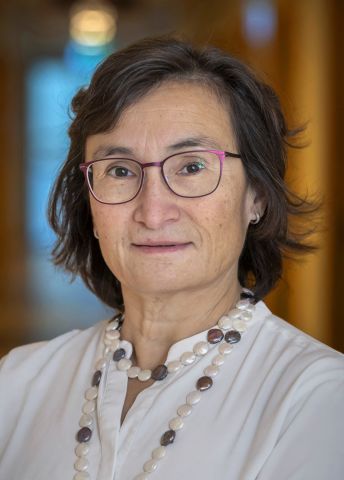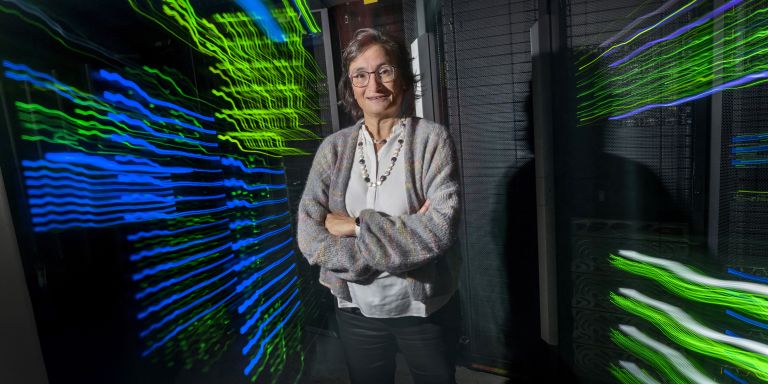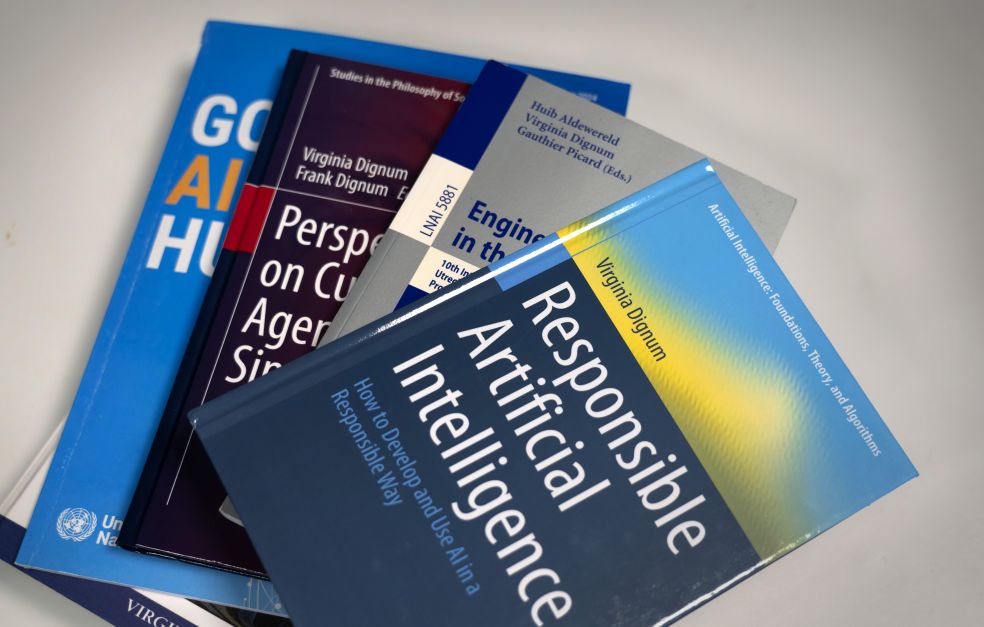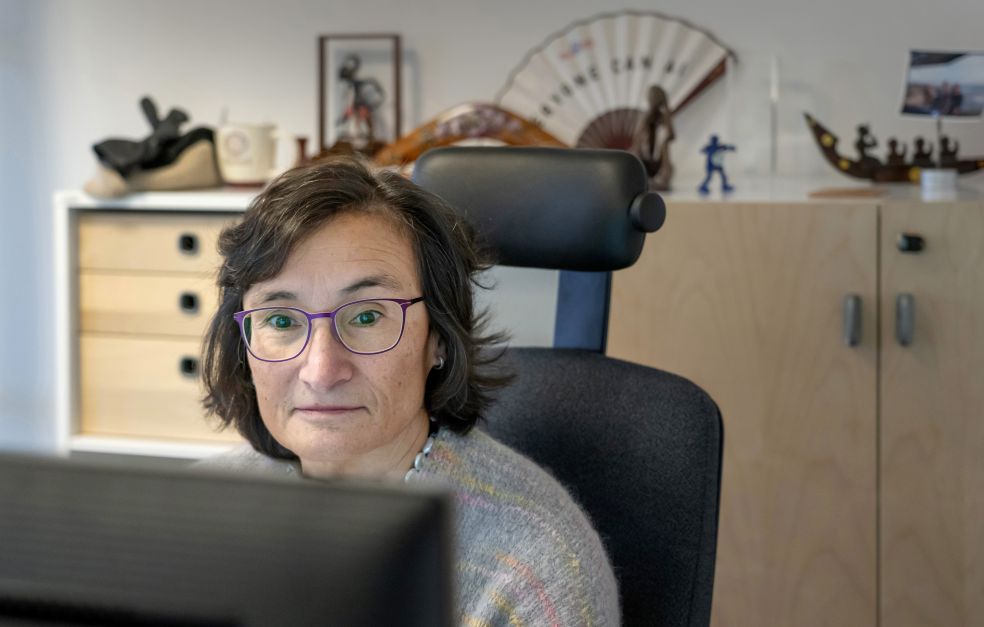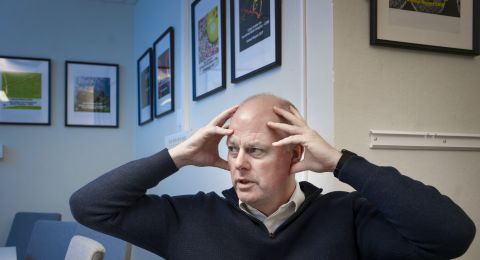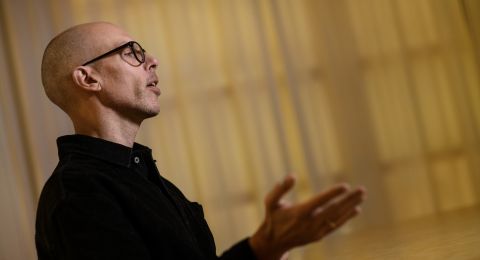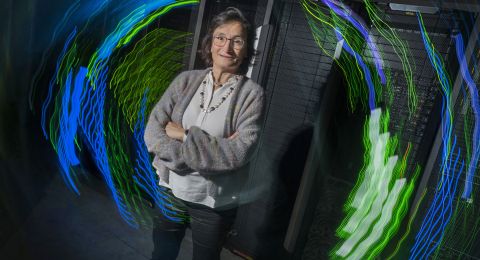Virginia Dignum, Professor of Responsible AI at Umeå University, has made a name for herself as an influential voice in AI ethics in Sweden and abroad. “AI must be developed to strengthen human abilities and improve our life quality without compromising our ethical norms,” she says.
Virgina Dignum
Professor of Responsible Artificial Intelligence
Wallenberg Scholar
Institution:
Umeå University
Research field:
Studies on the ethical and societal impact of AI
Dignum, born and raised in Portugal, became aware of one of the absolutely critical global questions for the future – Artificial Intelligence (AI) – as far back as the 1980s, when she was a student. Her first job, for example, was to develop an AI system to support the planning of subsidized housing in Lisbon.
“It was 1986, and even then I realized that AI does not come risk-free. An incident where the system wrongly suggested that a house be allocated to a family even though it was already occupied made me realize the importance of reliable data. The best AI system is only as good as the data it uses,” she says.
Since then she has accumulated long experience of developing expert systems, which led to a PhD in AI at Utrecht University in 2004. She thinks the most fascinating aspect of AI is its potential to fundamentally reshape society.
“AI can improve decision-making processes and help us to manage complex tasks. Some of the advantages are improved efficiency, rapid analysis of large data quantities and improvements in areas such as health care, transport and sustainable development,” she says.
But Dignum also warns about the downsides of AI. The technology brings with it ethical issues such as personal privacy, a risk of bias in decision making, a risk of jobs disappearing or that AI is used in a harmful way in the absence of the right regulation.
“The challenge lies in developing AI systems that are reliable, transparent and in line with human values so we can reduce these risks.”
Wants to create a dialogue on sustainable AI
As a Wallenberg Scholar, Dignum heads Umeå University’s new AI Policy Lab, whose task is to examine how policies can manage AI’s impact on society. She and her team are developing methods and tools for responsible use of AI, and endeavoring to ensure that decision makers are held accountable for their decisions and the systems they develop and operate. The lab, which has been partly funded by Knut and Alice Wallenberg Foundation, is both a research center and a resource for decision makers and the public. Dignum is using workshops, seminars and education programs to raise awareness of the potential and risks of AI.
“We want to create a dialogue on ethically sustainable AI and give decision makers tools to navigate a rapidly changing technological landscape. Our aim is to be a platform where researchers from different disciplines can meet to discuss and resolve the complex issues involved in AI,” explains Dignum, and adds:
“The AI Policy Lab will be a key player in the global debate on AI, its goal being creating a society in which AI technology is used in a way that respects human values and rights,” says Dignum.
My commitment is rooted in a firm conviction that AI should benefit humanity. AI should be used to strengthen human abilities and improve life quality – always with respect for human rights and ethical principles.
Have lived in many countries
Dignum has found her way to Umeå via a number of countries and continents. Having studied in Lisbon, she first moved to the Netherlands, and then on to Swaziland (now Eswatini), back to Portugal for a short time, and then to Australia.
“I’ve lived much of my life in the Netherlands – more than 30 years. My husband is Dutch, my children live there, and I still spend part of my time there,” she says.
She visits her relatives in Portugal, including her mother and siblings, several times a year. On her latest visit she also received the Gold Medal of Merit from her home city for her work on AI governance and the important contribution she has made to the development of responsible AI.
Leading international voice for responsible AI
Dignum has established herself as a leading voice for responsible AI development. Her participation on international panels under the auspices of the EU, UNESCO and the UN underlines her status as one of the foremost experts in the world on AI ethics and governance. She sees her work at the UN’s expert body as part of a larger mission to ensure that AI technologies are developed and used in the best interests of humankind.
“Creating global guidelines and policies for AI is a huge challenge, but essential if we are to ensure the technology is not used in a way harmful to society. My commitment is rooted in a firm conviction that AI should benefit humanity,” she says.
In her spare time Dignum is a keen runner. She used to run marathons, but she now finds it difficult to put in the necessary hours of training, given her busy work and travel schedule.
“I always pack my running shoes when I travel. Going for a run between meetings is a good way to see a city, and also helps to counter the effects of jet lag,” she says.
If she can’t fit in a run, she relaxes by knitting – she is particularly fond of knitting socks during long flights.
“Knitting helps me to wind down on long flights, and gives me a break from the hectic pace of my life,” she says.
Text Elin Olsson
Translation Maxwell Arding
Photo Johan Gunséus
